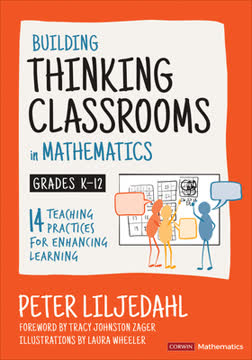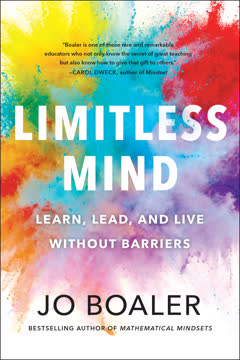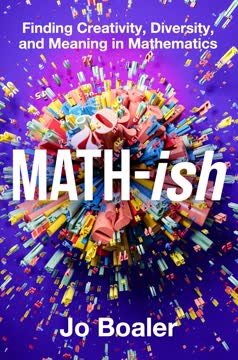重点摘要
1. 神经可塑性:无限潜能的基础
每当我们学习时,大脑都会形成、强化或连接神经通路。
大脑是适应性的。 神经可塑性的突破性发现揭示了我们的脑部并非固定不变,而是在一生中不断变化和重组。这种适应性意味着我们每个人都有潜力去学习任何东西,无论是被认为的局限性还是过去的经历。这挑战了长期以来的信念,即有些人就是“对某些科目不擅长”。
研究证据。 对伦敦出租车司机的研究显示,他们经过强度空间训练后,海马体(负责空间和数学思维的大脑区域)显著增长。同样,部分大脑被切除的儿童也展现出剩余半球适应并接管缺失侧功能的惊人能力。这些例子突显了大脑惊人的变化能力。
对教育的启示。 理解神经可塑性对教育工作者、家长和学习者至关重要。它鼓励我们拒绝固定能力的思维,拥抱成长心态,认识到智力和潜力并非预先决定,而是可以通过努力和有针对性的学习策略来发展。这一知识使我们能够以乐观和坚持的态度面对挑战,知道我们的脑部能够适应和成长。
2. 拥抱错误与挣扎以促进大脑成长
我们挣扎和犯错的时刻是大脑成长的最佳时机。
错误是宝贵的。 与传统观念相反,错误并不是要避免的,而是应当被视为大脑成长的机会。神经科学研究表明,当我们犯错时,大脑的活动更为活跃,形成新的神经连接并强化现有的连接。这个纠错过程对学习和技能发展至关重要。
挣扎的科学。 有意识的练习,特征是处于理解的边缘并频繁犯错,是发展专业技能的关键。这种类型的练习通常被描述为“有针对性、以错误为中心”,促进髓鞘的形成,髓鞘是一种绝缘神经纤维的物质,增加神经信号的速度和效率。
创造一个友好的错误环境。 为了促进成长,创造鼓励犯错和庆祝挣扎的学习环境至关重要。教师和家长可以通过将错误重新框定为学习机会、提供建设性反馈以及强调努力和坚持的重要性来帮助学生。这种视角的转变可以使学习者更好地接受挑战,并将挫折视为通往成功的垫脚石。
3. 信念塑造现实:心态的力量
当我们改变信念时,我们的身体和大脑也会发生物理变化。
心态很重要。 我们对自己能力的信念对潜力有深远的影响。拥有成长心态的人,相信智力和才能可以发展,更可能接受挑战、在挫折中坚持,并比那些持有固定心态的人取得更高的成就,后者认为能力是预先决定的。
身体与心灵的联系。 研究表明,我们的信念甚至可以影响我们的身体健康。研究发现,认为自己锻炼更多的人,即使实际活动水平相同,健康状况也更好。同样,对衰老持积极信念的人与更长的寿命相关。
培养成长心态。 我们可以通过以下方式培养成长心态:
- 识别并挑战固定心态的想法
- 赞扬努力和进步,而非天赋
- 拥抱挑战,将挫折视为学习机会
- 与积极的影响和榜样为伴
通过改变我们的信念,我们可以解锁潜力,创造更积极和充实的现实。
4. 多维学习:连接大脑网络
当以多维的方式考虑思想时,神经通路和学习会得到优化。
调动多种感官。 当我们调动多种感官和大脑网络时,学习效果最佳。这意味着从不同角度接近概念,使用视觉、模型、故事和现实应用来创造更丰富和更相互关联的理解。
大脑的沟通。 神经科学研究表明,大脑的不同区域负责不同类型的思维,如数字、空间和语言。当这些区域相互沟通时,学习效果会增强。
实用策略。 为了促进多维学习,教师和家长可以:
- 鼓励学生以不同方式表现概念(例如,绘制图表、写故事、制作模型)
- 将抽象思想与现实世界的例子联系起来
- 使用多种教学方法以适应不同的学习风格
- 促进讨论和合作,让学生接触多样的观点
通过刺激多个大脑网络,我们可以创造更深刻和持久的理解,培养创造力和解决问题的能力。
5. 灵活性胜于速度:深刻理解的关键
思维的速度并不是能力的衡量标准。当我们以创造性和灵活性接近思想和生活时,学习效果最佳。
速度并非智力。 我们的社会常常将速度与智力等同,尤其是在数学方面。然而,研究表明,速度并不是能力的可靠指标。事实上,一些最杰出的思想家思维缓慢而深思熟虑,花时间深入理解概念。
限时测试的缺点。 限时测试可能会造成焦虑,妨碍表现,尤其是对于那些并非天生快速思考的学生。这些测试往往评估记忆而非理解,抑制了对材料的深入参与。
拥抱慢思考。 为了促进深刻理解,我们需要优先考虑灵活性和创造性,而非速度。这意味着:
- 鼓励学生探索不同的解决问题的方法
- 重视深思熟虑的解释而非快速答案
- 创建一个庆祝错误和鼓励冒险的课堂文化
通过将焦点从速度转向深度,我们可以创造一个更公平和有效的学习环境,使所有学生都能充分发挥潜力。
6. 合作:通过连接释放潜能
与人和思想的连接增强了神经通路和学习。
社会学习。 学习不是孤立的活动,而是社会性的。与他人的合作使我们接触到多样的观点,挑战我们的假设,深化我们的理解。
合作的好处:
- 增强参与感和动机
- 改善沟通和解决问题的能力
- 提高创造力和创新能力
- 增强对他人的同理心和理解
创造合作环境。 为了促进合作,教师和领导者可以:
- 设计需要相互依赖和共同责任的小组项目
- 鼓励学生分享思考并提供建设性反馈
- 创建一个重视多样观点并庆祝集体成功的课堂文化
通过促进合作,我们可以创造更具吸引力、公平和有效的学习环境,使个人能够充分发挥潜力。
7. 无限制的生活:持续成长的旅程
生活中不可能不失败,除非你生活得如此谨慎,以至于根本不算生活——在这种情况下,你就是默认失败。
持续成长。 追求无极限的生活不是一个目的地,而是一个持续的成长和自我发现的过程。它涉及拥抱挑战、从错误中学习,并不断寻求新的知识和经验。
无极限生活的关键原则:
- 拥抱神经可塑性,相信自己有潜力学习任何东西
- 培养成长心态,将挫折视为成长的机会
- 寻求多样的观点,参与合作学习
- 优先考虑深刻理解而非速度和记忆
- 拥抱不确定性,愿意冒险
选择的力量。 最终,无限制的生活是一种选择。这是拒绝限制性信念、拥抱挑战、以勇气和决心追求激情的决定。通过拥抱这种心态,我们可以解锁我们的全部潜力,创造一个既有意义又充实的生活。
最后更新日期:
FAQ
What's Limitless Mind about?
- Neuroplasticity Focus: Limitless Mind by Jo Boaler explores neuroplasticity, the brain's ability to change and adapt throughout life, emphasizing that our brains are not fixed.
- Challenging Beliefs: It addresses damaging beliefs about intelligence, particularly in math, arguing these stem from societal messages and educational practices.
- Growth Mindset: Boaler introduces six keys to learning that promote a growth mindset, encouraging readers to embrace mistakes as essential parts of learning.
Why should I read Limitless Mind?
- Transformative Insights: The book offers groundbreaking insights into how beliefs about learning shape reality, providing strategies to overcome self-limiting thoughts.
- Research-Based Evidence: Boaler combines personal anecdotes with scientific research, making the content relatable and credible.
- Applicable to All Ages: The principles can be applied to various life aspects, encouraging lifelong learning and adaptability.
What are the key takeaways of Limitless Mind?
- Neuroplasticity is Key: Learning is a dynamic process that can happen at any age, forming and strengthening neural pathways.
- Embrace Mistakes: Mistakes are opportunities for brain growth, highlighting the importance of viewing challenges as development opportunities.
- Multidimensional Learning: Engaging with content through various methods enhances brain connectivity and fosters deeper understanding.
What are the best quotes from Limitless Mind and what do they mean?
- "Everything you’ve ever wanted is on the other side of fear.": Overcoming fear and self-doubt is essential for achieving personal goals.
- "We are not born with fixed abilities.": Challenges the myth of fixed intelligence, promoting the belief that effort leads to success.
- "Mistakes grow your brain.": Encourages viewing errors as a natural and beneficial part of learning.
What is neuroplasticity, and why is it important in Limitless Mind?
- Definition: Neuroplasticity is the brain's ability to reorganize itself by forming new neural connections throughout life.
- Learning Implications: Understanding neuroplasticity empowers individuals to believe in their capacity to learn and grow.
- Real-Life Applications: The book provides examples of harnessing neuroplasticity in educational settings to improve learning outcomes.
How does Limitless Mind address the fear of failure?
- Reframing Failure: Failure is a stepping stone to success, with mistakes seen as growth opportunities.
- Research Support: Studies show that struggling and making mistakes are the best times for brain growth.
- Building Resilience: Changing the narrative around failure helps develop resilience and a growth mindset.
What are the six keys to learning presented in Limitless Mind?
- Neuroplasticity: Understanding that our brains can change and grow is fundamental to embracing a growth mindset.
- Embracing Mistakes: Mistakes are essential for learning and should be welcomed as part of the process.
- Multidimensional Learning: Engaging with content through various methods enhances understanding and retention.
- Collaboration: Working with others fosters a supportive learning environment and encourages diverse perspectives.
- Positive Self-Beliefs: Cultivating a belief in one’s ability to learn is crucial for overcoming challenges.
- Lifelong Learning: Embracing the idea that learning is a continuous journey opens up endless possibilities for personal growth.
How can educators apply the concepts from Limitless Mind in the classroom?
- Encourage Growth Mindset: Foster a classroom environment that promotes a growth mindset by praising effort and resilience.
- Use Multidimensional Approaches: Incorporate various teaching methods to engage students and cater to different learning styles.
- Create a Safe Space for Mistakes: Establish a culture where mistakes are seen as valuable learning opportunities.
How does Limitless Mind address the concept of a growth mindset?
- Defining Growth Mindset: A growth mindset is the belief that abilities can be developed through effort and learning.
- Impact on Learning: Adopting a growth mindset can lead to improved academic performance and personal development.
- Practical Strategies: Boaler provides strategies for fostering a growth mindset, such as embracing challenges and viewing failures as growth opportunities.
What role does neuroscience play in Limitless Mind?
- Understanding Brain Plasticity: The brain is capable of change and growth throughout life, known as neuroplasticity.
- Effects of Stress and Anxiety: Stress and anxiety can negatively impact learning by impairing working memory.
- Learning Through Struggle: Neuroscience research supports the idea that struggle is beneficial for brain development.
How can I apply the concepts from Limitless Mind in my own life?
- Adopt a Growth Mindset: Change your self-talk and beliefs about your abilities, reminding yourself that effort leads to improvement.
- Embrace Mistakes: View mistakes as valuable learning experiences rather than failures.
- Engage in Collaborative Learning: Seek opportunities to work with others, enhancing understanding and allowing for diverse perspectives.
How does Limitless Mind address the issue of math anxiety?
- Identifying Causes: Timed tests and speed-based learning are significant contributors to math anxiety.
- Changing Perspectives: Promotes the idea that everyone can learn and succeed in mathematics.
- Practical Solutions: Offers strategies for reducing math anxiety, such as creating a supportive learning environment and emphasizing understanding over speed.
评论
《无界思维》因其关于大脑成长与学习能力的鼓舞人心的信息而获得了大多数积极的评价。读者们欣赏博勒(Boaler)基于研究的见解,强调拥抱挑战、重视错误以及采用成长型思维。有些人认为这本书内容重复,或认为书名具有误导性,因为它主要集中在数学教育上。批评者认为“无界”思维的概念被夸大了。总体而言,许多读者认为这本书具有激励性,并且适用于学习和个人发展的各个方面。
Similar Books














